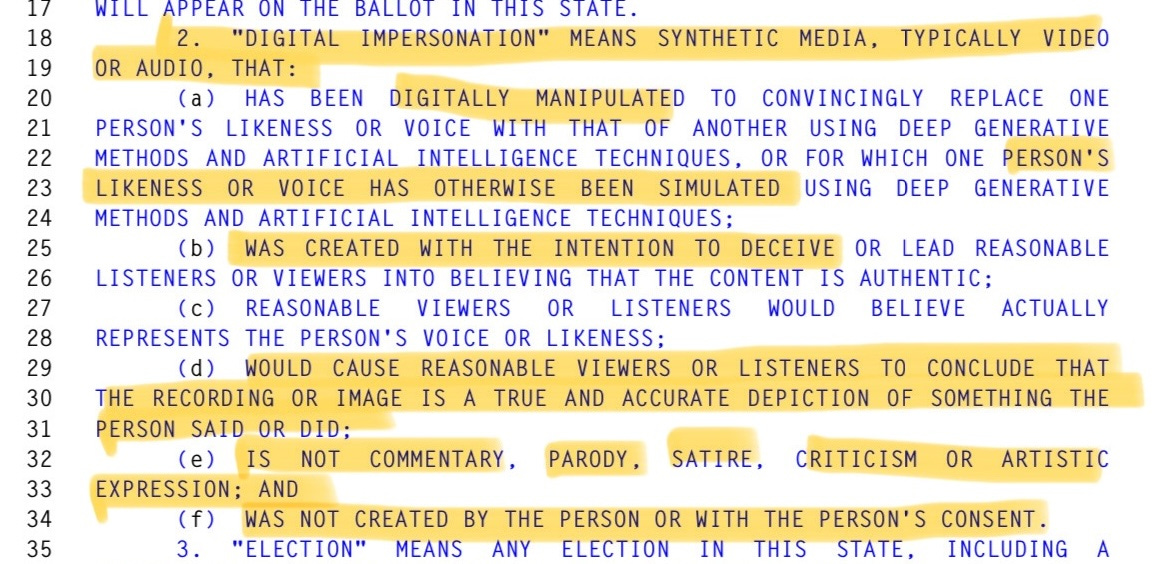ChatGTP is now assisting in writing legislation
The legislation was recently signed into law in Arizona, highlighting a potentially significant use-case for Artificial Intelligence in government
State lawmaker Alex Kolodin of Arizona drafted deepfake legislation using the help of ChatGTP because he was struggling with the technical aspects that had to do with defining deepfakes. Kolodin claimed the portion ChatGTP wrote was the least amended portion compared to the rest of the bill.
This bill reportedly gives Arizona Residents and political candidates a way to legally assert they, as well as their dependents, are not featured in published deepfakes. There was near unanimous support for the bill, and it was signed into law by Governor Hobbs on May 21st, 2024.
People’s likeness are being used to impersonate them for a variety of purposes:
Fraud and Financial Crime
Identity Theft
Social Engineering
Revenge Porn
Political Manipulation
Cyber Crime
Those pushing for government action on this issue argue that victims of deepfake impersonations should have legal recourse. Some of it can be very damaging to one’s privacy, personal safety, reputation, finances, and their general well being.
This bill addresses that but requires those affected to prove that it was published without their consent, there was no attempt to convey that it was fake, and that it wouldn’t be obvious to a reasonable person viewing it.
In addition to these criteria, they must also prove one of the following:
An election is scheduled for a political or party candidate affected
The content is pornographic in nature, or depicts unclothed genitalia
The content depicts a criminal act
Significant damages can be incurred absent preliminary declaratory relief
Imminent irreparable damage to reputation
It also gives a cause of action when one’s likeness is used in an ad. However, action can only be taken against the person or entity that originated, ordered, placed or paid for the ad.
The court must rule on the preliminary declaratory relief within two days from when the complaint is received by the relevant parties, excluding weekends and holidays.
The bar for receiving injunctive relief and damages in addition to the preliminary declaratory relief is relatively high for public figures, much lower for private citizens, and covers a wide array of hypothetical, plausible circumstances.
Here’s the bill (HB 2394) for your reference:




